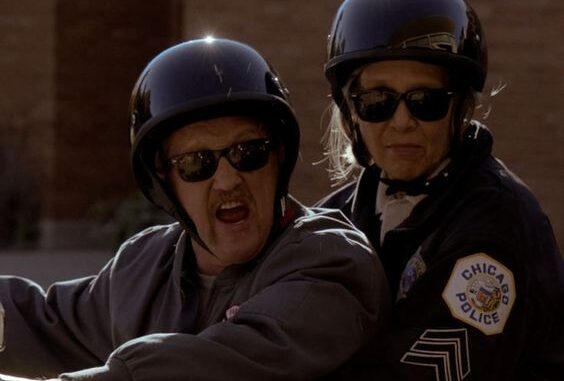
The streets of Chicago will stay under the watchful eyes of the Intelligence Unit for at least another year — but not without major adjustments. NBC has officially renewed Chicago P.D. for Season 13, giving fans a reason to celebrate. However, the celebration is bittersweet, as the renewal comes with reports of significant budget cuts that may impact everything from casting to production scale.
With the series entering its 13th year on air, Chicago P.D. remains a staple of NBC’s primetime lineup and a flagship of the One Chicago universe. Yet behind the scenes, the landscape is shifting. As the television industry grapples with rising production costs, shifting audience behaviors, and the ever-growing pressure of streaming competition, even long-running hits like Chicago P.D. aren’t immune to change.
Despite rumors that the show might be winding down, NBC made it official: the drama will return for a 13th season during the 2025–2026 broadcast year. The decision reinforces the network’s commitment to its One Chicago block — which includes Chicago Fire and Chicago Med — and its belief in the franchise’s enduring popularity. The renewal is no small feat. At a time when many scripted shows are getting the axe after just a few seasons, Chicago P.D. has demonstrated exceptional staying power. Its gritty tone, morally complex characters, and pulse-pounding cases continue to draw in millions of live viewers — and even more on Peacock, where back seasons remain popular for binge-watching.
The show’s longevity is a testament to the strength of its writing team, production crew, and deeply invested cast. But that doesn’t mean things will continue exactly as they have in the past. According to multiple industry sources, NBC’s decision to renew Chicago P.D. came with a clear caveat: production costs need to be reduced. While the exact numbers remain undisclosed, the ripple effects of this cost-cutting directive are already being felt. One of the most noticeable changes could be a smaller main cast. With Tracy Spiridakos (Detective Hailey Upton) already confirmed to be exiting the series at the end of Season 12, her departure may be just the beginning. NBC may choose to trim down the ensemble or rotate characters in and out more frequently to manage costs. Fans are understandably concerned about who might be next.

In addition to casting, budget cuts may affect the show’s signature style. Chicago P.D. is known for its cinematic look — real city locations, dramatic stunts, and intense shootouts. However, tighter budgets might force the crew to scale back on large outdoor scenes, rely more on controlled indoor settings, and reduce costly sequences. This shift could result in a season that leans more heavily on dialogue, interrogation rooms, and character conflict, rather than explosive action. Another likely change is the number of episodes. While the show has traditionally delivered 20–22 episodes per season, Season 13 might feature only 13–16 episodes, following a trend seen in many other network dramas. A shorter season could allow for tighter storytelling with fewer filler episodes — but also means fewer weekly installments for fans to enjoy and more pressure to deliver impactful moments quickly.
Despite these looming changes, there’s also potential for creative opportunity. Forced to work with less, writers might dig deeper into characters, relationships, and ethical dilemmas. Instead of relying on big action scenes, the series could double down on emotional arcs and psychological tension. We might see Voight struggle with the emotional weight of losing another team member, Burgess and Ruzek continuing to navigate parenthood and trauma recovery, and Atwater getting long-overdue storylines that tackle race, justice, and community trust. Newer additions like Dante Torres could rise to prominence as the squad reshuffles and adjusts to a new reality.
While most fans are thrilled the show is returning, many worry about the long-term effects of the budget cuts. Social media has been flooded with mixed reactions. Some fans urge NBC to protect the show’s emotional core and prioritize strong storytelling over flashy visuals. Others fear that if ratings don’t hold, Season 13 could become the final chapter — especially if costs continue to outweigh returns. Still, there’s hope. The show has reinvented itself before. It’s survived the exits of major characters like Erin Lindsay, Antonio Dawson, and Jay Halstead. It’s evolved from a gritty action drama into a character-driven exploration of justice, morality, and personal sacrifice.
As Chicago P.D. prepares for a pivotal Season 13, the pressure is on — not just to maintain quality, but to prove that the show can thrive even under constraints. Less money doesn’t have to mean less impact. With the right scripts, strong performances, and a commitment to what made the show successful in the first place, Chicago P.D. can continue to deliver powerful stories that resonate with viewers. Whether it’s an explosive takedown or a quiet moment of reflection in the squad room, what matters most is that the badge still means something — and that the Intelligence Unit continues to stand for something in a world that doesn’t always play by the rules.
